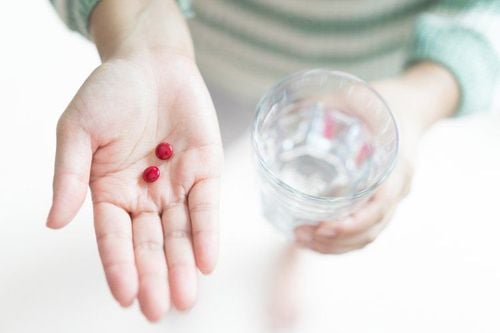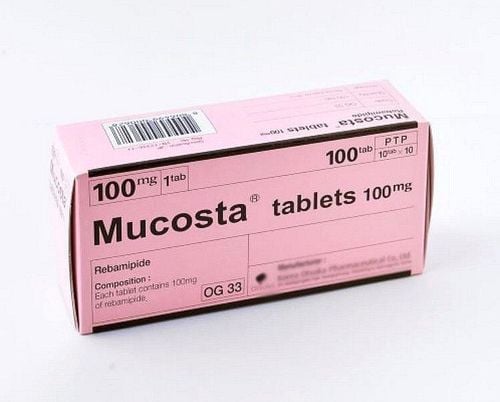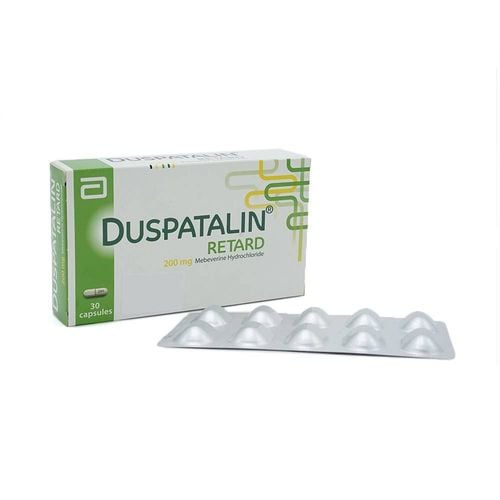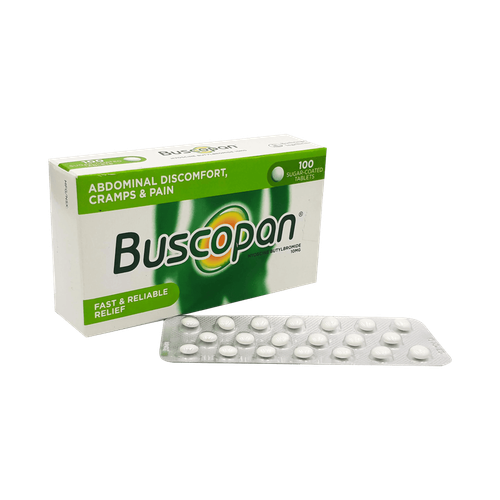If you are suffering from digestive disorders such as irritable bowel syndrome, your doctor may recommend the medication Trimebutine for this condition. You can continue reading the following article to learn more about the prescribed medication Trimebutine.
1. What is Trimebutine?
Trimebutine is a drug with the active ingredient Trimebutine, which belongs to the antispasmodic group.
Trimebutine is available in the following formulations and dosages:
- Tablet form, film-coated tablet: 100 mg, 200 mg;
- Injectable solution: 50 mg/ml;
- Oral solution: 4.8 mg/ml x 250 ml and 4.8 mg/ml x 125 ml.
2. What is the effect of Trimebutine?
Trimebutine can regulate gastrointestinal motility and relieve spasms by acting on the Meissner and Auerbach plexuses, which are local nerve systems in the gastric mucosa that help regulate gastrointestinal function.
An interesting feature of Trimebutine is its dual action: it can both inhibit and stimulate intestinal motility.
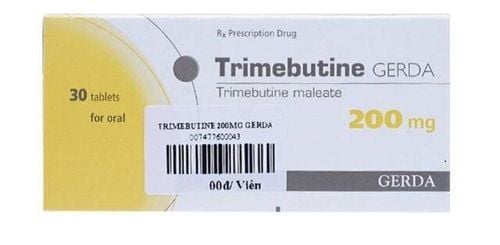
3. What does Trimebutine treat?
Trimebutine is commonly used to treat functional gastrointestinal disorders such as:
3.1. Trimebutine for Peptic Ulcers
This condition involves the loss of gastric and duodenal mucosa, typically caused by Helicobacter pylori, stress, prolonged tension, NSAIDs, corticosteroids, corticoid derivatives, alcohol, and smoking.
Peptic ulcers may present with various symptoms depending on the location of the lesion and the patient's age. Common symptoms include burning or gnawing pain, which may be related to meals or not.
3.2. Trimebutine for Gastroesophageal Reflux Disease (GERD)
GERD is a condition in which the lower esophageal sphincter works inefficiently, causing stomach acid to flow back into the esophagus and resulting in a burning sensation. If left untreated, GERD can lead to complications such as esophagitis, esophageal cancer, and Barrett's esophagus.
Typical symptoms include heartburn, and in some cases, no reflux into the mouth. In children, symptoms may include vomiting, loss of appetite, irritability, or aspiration into the respiratory tract. When complications like esophagitis or esophageal cancer occur, symptoms may include painful swallowing, choking, or esophageal bleeding.
3.3. Trimebutine for Irritable Bowel Syndrome (IBS)
IBS is characterized by recurrent abdominal discomfort or pain along with at least two of the following features: related to defecation, frequency of bowel movements, or stool consistency. The cause of IBS remains undetermined.
In addition to digestive symptoms like intermittent or continuous abdominal pain, constipation, or diarrhea, other symptoms may include fatigue, sleep disturbances, chronic headaches, and muscle aches.
Diagnosis is clinical after excluding other common conditions through laboratory tests.
Additionally, Trimebutine is used to treat:
- Bloating, constipation, diarrhea;
- Post-abdominal surgery to enhance intestinal recovery, prevent obstruction, and treat ileus.
As with any medication, Trimebutine should not be used if you have a history of allergy to Trimebutine or any components of the drug. When prescribing to pregnant women, breastfeeding mothers, or children under 12, doctors will carefully weigh the benefits and risks.
4. How should I use Trimebutine?
For Trimebutine tablets, it should be taken before meals. For the oral solution, use appropriate utensils like a spoon or cup to measure the correct dose.
Doctors will prescribe the appropriate dosage based on your condition and response. Typically, for adults and children over 12 years old, the dosage is 300 mg/day (1 tablet of 100 mg/ dose x 3 times/day), which may be increased to 600 mg/day.
The duration of treatment is usually 3 days, but if no warning signs are present, the maximum treatment period may extend to 7 days.
For children, the usual dosage is 5 ml/5 kg/day.

5. Drug interactions with Trimebutine
Using Trimebutine with certain medications may cause interactions such as:
- When used with 1,2-Benzodiazepine, it can enhance the central nervous system depressant effect of 1,2-Benzodiazepine;
- When used with medications like Acemetacin, Abacavir, Aceclofenac,
- Acetaminophen, it can reduce the clearance rate and increase the blood concentration of Trimebutine;
- The therapeutic effect of Trimebutine may be reduced when used with Acetazolamide;
- Using it with Acarbose or Acetohexamide can cause more pronounced hypoglycemia;
- When used with Acebutolol, it can increase the risk of bradycardia.
6. Does Trimebutine have any harmful effects on the body?
Trimebutine can cause adverse effects, though they are rare, and often do not require treatment.
Possible side effects of Trimebutine include:
- Gastrointestinal: Bad breath, dry mouth, diarrhea, indigestion, nausea, constipation, epigastric pain;
- Central nervous system: Fatigue, drowsiness, dizziness, headaches, hot/cold sensations;
- Allergic reactions: Rash, itching, swelling;
- Other issues: Menstrual disorders, breast pain, chest tightness, tinnitus, mild hearing loss, anxiety, urinary retention, liver enzyme elevation.
7. What precautions should I take when using Trimebutine?
- Store the medication in a dry place, away from temperatures above 30°C, and out of direct sunlight. Keep it out of reach of children and pets;
- Do not use expired Trimebutine and dispose of it as directed by a healthcare professional. Do not flush the medication down the toilet or drain;
- Follow the prescribed dosage exactly as directed by your doctor;
- Inform your doctor if you do not notice any improvement in your condition after treatment;
- There is no evidence that Trimebutine causes fetal malformations. However, it is advisable to avoid using it during pregnancy, especially during the first trimester;
- Since the drug may cause drowsiness, dizziness, nausea, or fatigue, be cautious when performing tasks requiring high concentration, such as driving or operating machinery;
- Inform your doctor if you have a history of allergies to medications, excipients, or any other substances;
- If you miss a dose, skip it and take the next dose as prescribed. Do not take a double dose;
- If you overdose and experience unusual symptoms, seek immediate medical attention.
Alcohol, smoking, and certain drugs may interact with Trimebutine, so it is advisable to limit their use while on treatment.
In conclusion, Trimebutine can regulate gastrointestinal motility and relieve spasms. For safe and effective use, patients should follow their doctor's instructions.
To arrange an appointment, please call HOTLINE or make your reservation directly HERE. You may also download the MyVinmec app to schedule appointments faster and manage your reservations more conveniently.




